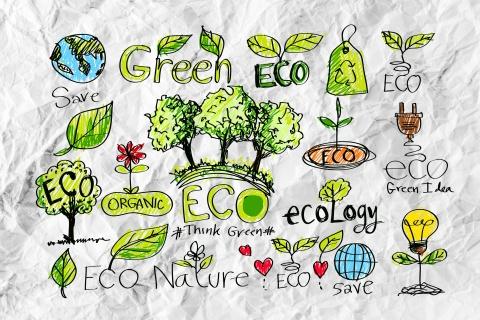
IAMCR is pleased to announce the winners of the 2023 Climate Change Communication Award.
Announcing its decision, the Climate Change Communication Award Selection Committee said:
"This year’s submissions confirmed the strength, diversity, and innovation of members’ work in tackling the urgent challenges of climate change communication. Reflecting IAMCR’s genuinely global reach they came not only from the established centres of academic inquiry in the North but also from scholars working on the front line of climate change in India, Pakistan, Kenya and China."
This year the winner papers are:
Manoj Kumar Das from Central University of Sikkim and Subha Das Mollick from Aliah University, Kolkata for their paper Filming the environment: Lessons from Earth Reel’s film pedagogy initiative in Kolkata schools which imaginatively wove theory, pedagogy, and practice together to offer inspiring lessons for practical intervention that will hopefully be taken up elsewhere.
Joseph Gotte from the Centre d’etude des Discours, Images, Ecrits Communication (Ceditec) at the Universite Paris-Est- Creteil for Ecological apocalypse: An elective affinity between political and religious discourses?. At a time when the threat of ecological collapse is now routinely compared to visions of the Biblical apocalypse and increasing numbers of people make practical arrangements to prepare, this paper combines theories, approaches and methods to produce a compelling and thought- provoking argument on an under researched area of popular constructions of climate change.
Download Joseph Gotte's paper here
Julia Cope from the Annenberg School of Communication at the University of Pennsylvania for Capturing Climate Claims: A computational discourse analysis of energy company press releases. The mis and disinformation techniques employed by the fossil fuel companies have attracted increasing commentary and research. This paper offers a genuinely innovative methodological approach to interrogating corporate public communication strategies.
This year’s submissions confirmed the strength, diversity, and innovation of members’ work in tackling the urgent challenges of climate change communication. Reflecting IAMCR’s genuinely global reach they came not only from the established centres of academic inquiry in the North but also from scholars working on the front line of climate change in India, Pakistan, Kenya and China.
On behalf of the Climate Change Communication Award Evaluation Committee I would like to thank everyone who submitted an entry this year. Your work in confronting the climate emergency with innovative research, analysis, and practical interventions is an indispensable contribution to IAMCR’s wider commitment to understanding the role that communication is playing in shaping present thought and action and the role it needs to play in securing a sustainable and just future."
Graham Murdock
Emeritus Professor of Culture and Economy Loughborough University
Chair: 2023 Climate Change Communication Award Evaluation Panel
The award will be formally presented at a special session to be held on 13 July during the main IAMCR 2023 conference in Lyon.
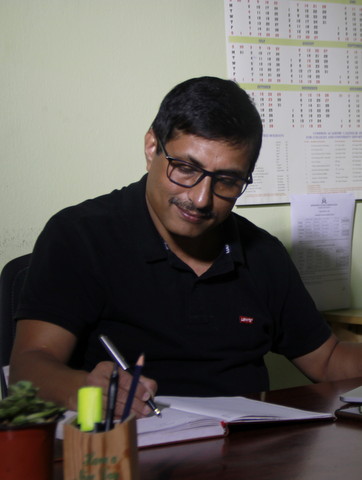 Manoj Kumar Das
Manoj Kumar Das
Manoj Kumar Das is a senior assistant professor and currently heads the Department of Mass Communication at Sikkim Central University, Gangtok, India. He had worked as a development professional with some leading agencies in India for over a decade before making a mid-career switch to university teaching in 2007. With a master's degree and MPhil in Mass Communication, he earned his doctoral degree from New Delhi-based Jamia Millia Islamia's Centre for Culture, Media and Governance. His primary areas of interest have been in the field of Communication for Social and Behaviour Change, Media Anthropology, Journalism Studies, and Media and Religion. He has successfully concluded a research project sponsored by the Indian Council of Social Science Research (ICSSR) on digital religion and youth. Among his publications is his latest book, Television Religion in India: An Anthropological Reading, published by Routledge in 2022.
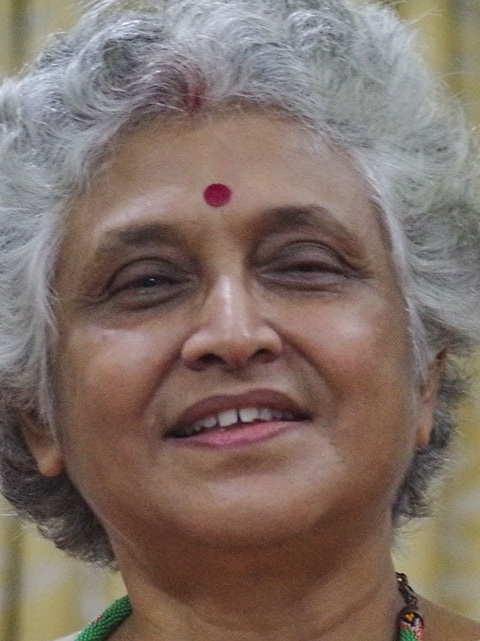 Subha Das Mollick
Subha Das Mollick
Subha Das Mollick has been an Associate Professor and Head of the Department of Media Science and Film Studies at St. Xavier's College, Kolkata and iLEAD Institute. She is a visiting faculty in the Department of Journalism & Mass Communication at Aliah University and Viswa Bharati University. She has been the principal instructor for two online courses titled "Penning for Frames" and "Television Journalism" on the SWAYAM Platform. These courses have been produced by EMRC Kolkata.
Ms Mollick is also an independent documentary filmmaker and a writer of analytical pieces on cinema and education. Her films have been critically acclaimed and have won prestigious awards. Innovative pedagogical practices are her other area of interest. As the founder secretary of Bichitra Pathshala, she promotes and practices the pedagogy of "Cinema in the Classroom."
Abstract
Filming the environment: Lessons from Earth Reel’s film pedagogy initiative in Kolkata schools
This paper examines an ingenious communication initiative launched in 2013 to sensitise Kolkata's school children on compelling environmental and climate change issues. Called the Earth Reel, the filmmaking competition —with the environment and climate change as the core theme —has seen more than 250 films produced by children to date. Based on data collected over ten years through participant observation, the paper underscores how filmmaking can be an effective pedagogical tool in environmental education, rights, and even activism among young people. Factors that have sustained the endeavour for more than a decade have been examined in the paper, as also the transformative effect Earth Reel has had on the students who have participated in the filmmaking process. Critically examining some of the films on various environmental issues made by children from both elite and rural schools, the paper argues that various processes and activities subsumed in filmmaking contribute to multiple learning outcomes for the participants.
The authors also posit the potential of such films in influencing the peer group and sensitising a wider audience to issues related to the environment. Mentors' role has been found to be pivotal in making Earth Reel a meaningful, sustainable and effective intervention. The authors further argue that the Earth Reel model can be replicated and scaled up to give greater momentum to climate change communication.
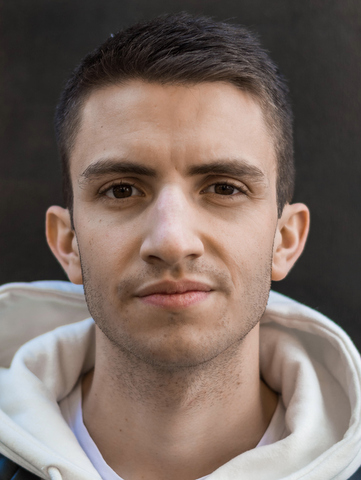 Joseph Gotte
Joseph Gotte
Joseph Gotte is a PhD student in political communication studies at the Centre d’étude des discours, images, textes, écrits, communication (Céditec) based at Université Paris-Est-Créteil. Since 2020, he has been working on a discourse analysis research under the direction of Claire Oger, focusing on the theme of ecological collapse in the discourse of leading intellectuals and activists in France, Belgium and Switzerland from 2015 to 2021.
Abstract
"Ecological apocalypse": An elective affinity between political and religious discourse?
Apocalypticism has become an integral part of contemporary rhetoric surrounding the environmental crisis. Although the parallel with religious discourse is often drawn with the aim of discrediting ecological warnings, this work proposes to consider the comparison seriously in order to grasp its rationality. The Weberian category of “elective affinity”, often invoked to examine circulations between religious and secular spheres, is revisited here to explore convergences and discontinuities between religious apocalypticism and ecological catastrophism. Four aspects are examined: the relationship to time, the belonging to a specific “genre”, the ethos and the pragmatic aim. This work is based on a qualitative study of discourses on ecological “collapse” in France, Belgium, and Switzerland through 72 books, 11 videos published online, and 5 films and TV programs. It is complemented by the results of 15 interviews and 25 observations.
Download "Ecological apocalypse": An elective affinity between political and religious discourse?
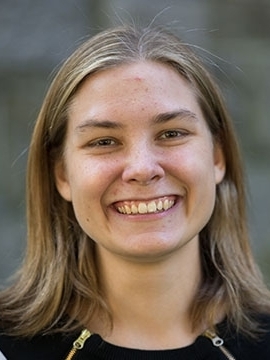 Julia Cope
Julia Cope
Julia Cope is a PhD student at the Annenberg School for Communication at the University of Pennsylvania. She received her B.S. and M.S. in Information Science from the University of Pittsburgh and worked as a data scientist before starting her PhD. Her interests lie at the intersection of discourse, political economy, and public opinion of contentious scientific topics such as climate change. Her current projects include a computational text analysis of the public discourse of the American energy industry and a historical analysis of the advertising industry’s discourse on climate change in the mid-2000’s. These projects shed a light on the power relations behind the ongoing global climate debate.
Abstract
Capturing Climate Claims: A computational discourse analysis of energy company press releases
The energy industry has been widely criticized for its contribution to greenhouse gas emissions and its role in spreading misinformation about climate change (Lewandusky, 2021). For this study I computationally analyze 22 years of press releases from the five largest US energy companies (ExxonMobil, Chevron, Marathon Petroleum, Phillips 66, Valero Energy) to investigate the dynamics of public climate discourse within the American energy industry (Fortune 500, 2022). This study addresses the following questions: As public belief in climate change has increased, (1) how much has the American energy industry publicly discussed climate change over the past 22 years? (2) How has the American energy industry characterized climate change? To understand the dynamics of climate discourse over time, I created a supervised machine learning classifier to detect sentences that mention or imply the scene of climate change within the energy company press releases. Then, I utilized topic modeling to characterize the climate related press releases passages.
Climate Change Communication Award 2023 Selection Committee
- Graham Murdock, Chair (Loughborough University, UK)
- Hanna Morris (University of Toronto, Canada)
- Kerrie Foxwell-Norton (Griffith University, Australia)
- Jeremy Swartz (University of Oregon, United States)